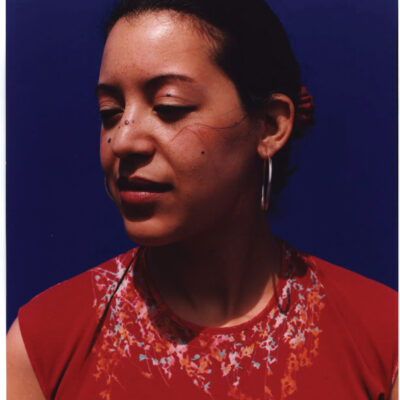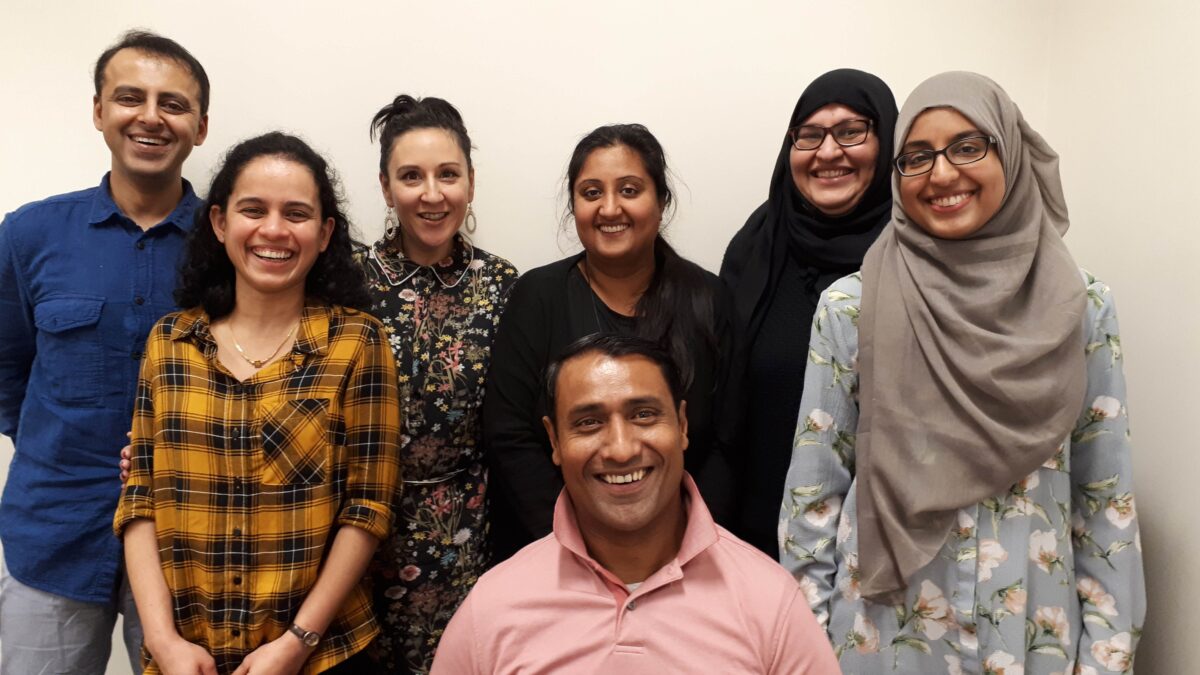
UK’s Dahlia Publishing
Melanie Abrahams
“We want this to be a safe space for non-white writers navigating a predominantly white sector that has historically excluded their voices.”
Dahlia Books is a small but agile independent press based in Leicester that champions regional and diverse voices and provides a platform for original fiction and writers who are ignored by the mainstream. Established by writer and editor Farhana Shaikh in 2010, the press has nurtured many early-career writers through publication, showcasing and professional development programs in collaboration with a vast network of regional and national organisations.
Dahlia’s leading programme is The Middle Way Mentoring Programme, a two-year professional development project designed to support Black, Asian and minority ethnic writers based in the Midlands and funded by Arts Council England.
Developed sensitively to cater to the needs of global majority practitioners, the program encourages participants to think of themselves as writers and examine the craft and the journey a writer needs to take to be published and become a professional creative.
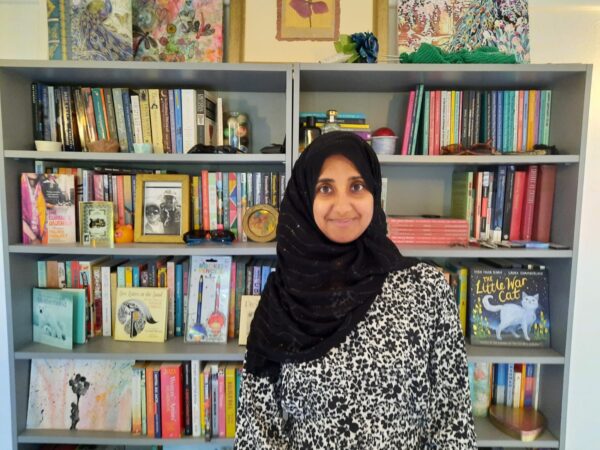
Farhana Shaikh, Managing Editor of Dahlia Publishing
The Middle Way encourages deep and frank conversations within the group about being a person of colour, navigating the industry and the ways that can play out in different scenarios.
In the program’s first year, participants undertake six mentoring sessions from professionally established writers, monthly masterclasses, and regular contact with Farhana, who offers leadership and pastoral care. This frequency of contact builds muscle memory and prompts participants to think regularly about their craft and closely consider what and why they do what they do. This is particularly valuable in that much of the craft of writing (and many art forms) happens in isolation.
The second year guides the writers towards independent thinking and planning, such as tangible ways to forge a successful career and focus on the longer term.
Another significant benefit for participants is the sector and cultural circles become increasingly demystified through exposure to regional and national professionals and partners. This encourages the program’s cohort to relate to and consider the industry they are entering and making strides in.
The depth of exchange across the program’s two-year period is unique. The mentors, delivering critical feedback and masterclasses, also gain from their two-way interactions with mentees from diverse backgrounds. A camaraderie is fostered, unlike other mentoring programs which provide short-term or one-off experts.
“I have noticed these writers are still connected, and they champion each other,” Farhana observes of Middle Way alumni. “I hold on to that rather than that they will all win a major prize.”
The writers have also been supported to submit work to anthologies and prizes and to contribute to a collaboration piece – a group anthology – with guidance from mentors. As a result, the program has had quite a few success stories, with some alumni published by sought-after publishers, being featured on TV and radio, and, in an overarching way, graduating with increased confidence, networking and connectivity that champions diversity and difference.
“Because the practitioners are from specific backgrounds, we have a huge diversity in how they produce work… that diversity is exciting as they can learn from each other and open a window to something new,” Farhana says.
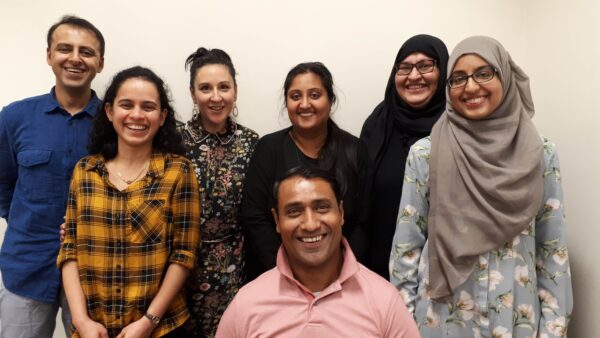
Dahlia Publishing team
Key takeaways
-
- Adaptability
“I always hold onto this thing that a mentor told me about meeting people where they’re at, not where you want them to be. This project – and any project – needs to have the kind of flexibility in thinking about who’s in the room. Also, how are you going to meet their needs as opposed to the needs of the project?” - Reflection
“Stopping or pausing to recognise what you are doing is important. Sometimes we can set ourselves into a cycle where we don’t stop to recognise our achievements and our impact. We can be guilty of moving quickly to the next goal or the next thing we want to do rather than pausing for a moment and thinking about how far we’ve come.” - Mentoring
“If you don’t have a team, a mentor can help to enable conversations and steer actions. If you’re able to find a budget to pay a mentor, it can be valuable. If there’s no budget available, some people are happy to meet and talk over a coffee. We shouldn’t be afraid to ask for conversations with people we admire.” - Sustaining Ourselves
“We need to sustain ourselves. We can burn out if we keep moving constantly and don’t stop to acknowledge what’s happening. This is something I’m working on, to pause and recognise. Sometimes, we need to stop and celebrate before pushing forward.”
- Courage
“Identifying clearly what is happening in the sector is crucial. Think about what the sector might lack and how you can, with your point of difference as well as with your courage, actually challenge that.”
- Journaling
“A final takeaway which I offer as a writer is journaling and the art of reflection. You can do this daily, weekly or monthly. Do whatever you need to help guide yourself and hone into what that is. This will help you overcome self-doubt. You can have more impact on the things you want to achieve.”
- Adaptability
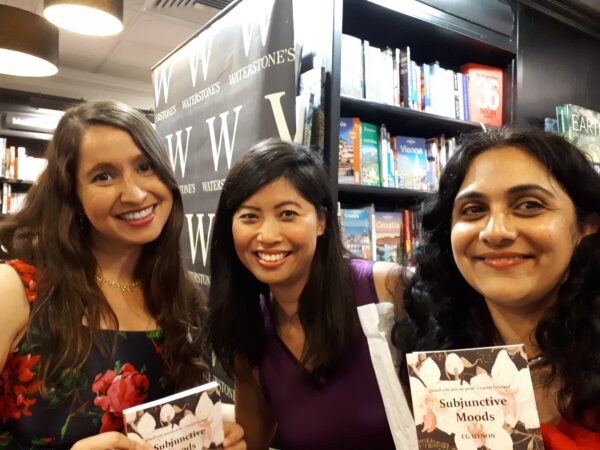
Melanie Abrahams
Melanie Abrahams has been creating multidisciplinary events, festivals and occasions for conversation and wellbeing for 25 years, as a curator, consultant, producer and public speaker. She consistently pushes for greater diversity in the arts, with a focus on race, class and intersectionality. She set up Renaissance One to support outstanding artists who were deserving of a greater profile and clients include John Agard, Grace Nichols, Patience Agbabi, Seni Seneviratne, 2023 T.S.Eliot and Forward Prize winner Jason Allen-Paisant and calypsonian Tobago Crusoe. As a curator-producer, she has collaborated with Chris Ofili, V&A, Bernardine Evaristo, British Council and the Museum of Modern Art (Finland).
What is the Imagine Around the World Project?
A partnership with the British Council Australia, the Imagine Around The World Project aims to document case studies from numerous countries to share best practice and leadership in cultural diversity, cultural equity and inclusion in the arts, screen and creative sectors. This project is managed by Diversity Arts Australia and supported by Creative Equity Toolkit partner, British Council Australia. To find out more click below – or read the other case studies as they go live here.

